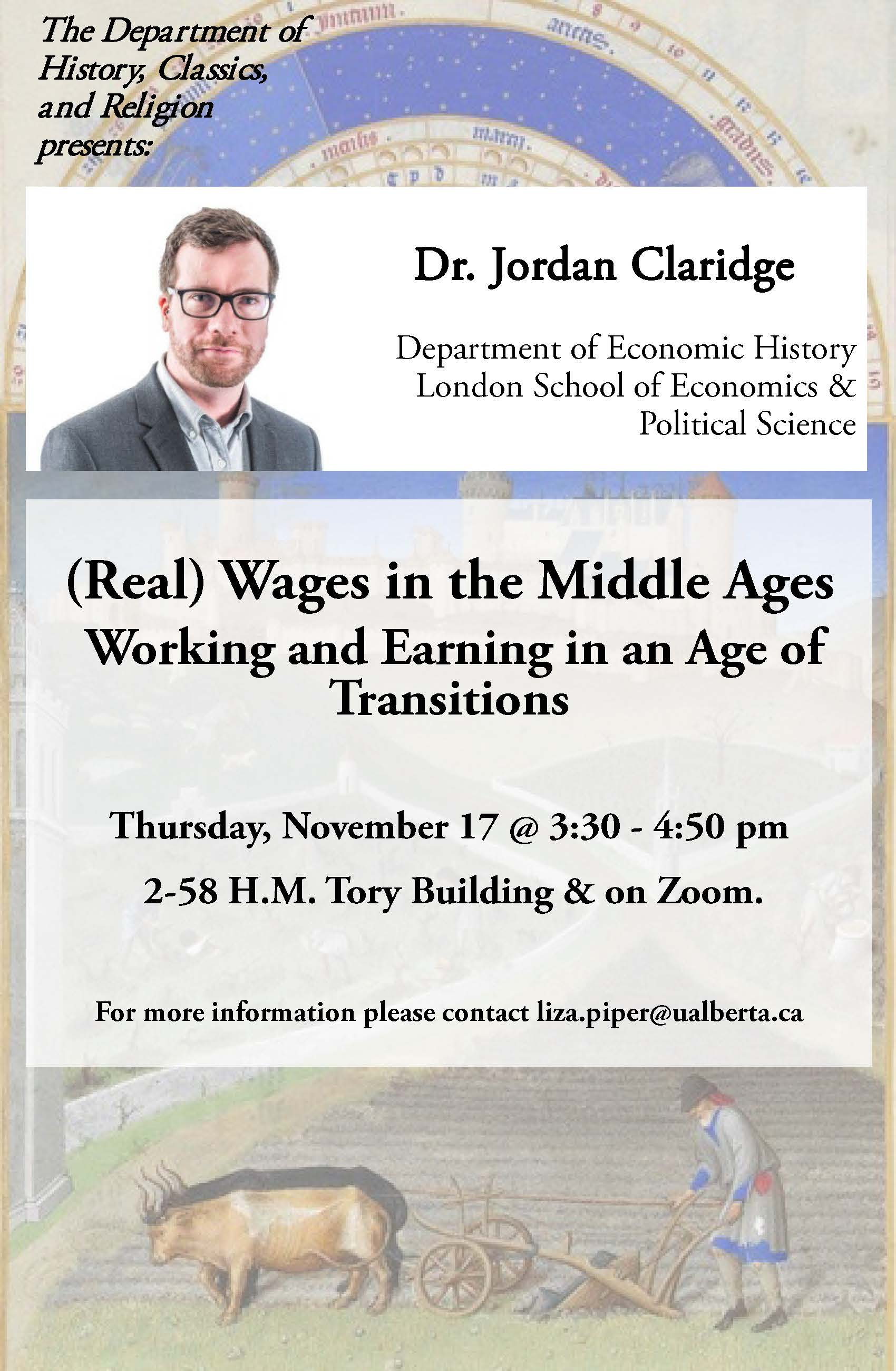Upcoming History Talk
9 November 2022

The Department of History, Classics, and Religion presents:
Dr. Jordan Claridge (Department of Economic History, London School of Economics)
(Real) Wages in the Middle Ages: Working and Earning in an Age of Transitions
Thursday, November 17 @ 3:30 - 4:50 pm
2-58 Tory Building & on Zoom (see details below).
Abstract:
While historians have long appreciated that information on wages and standards of living are among the best evidence to explore the dynamics of preindustrial economies, recent scholarship has pushed wages to the very centre of these debates. Wage evidence has become the fulcrum upon which several grand theories, like the Little and Great Divergences and the ‘Malthusian’ nature of pre-modern economies, now pivot. Yet, there remains a degree of arbitrariness surrounding both the data and the assumptions that form the basis of many wage series. In medieval England, as in most pre-modern societies, wages could be paid by the day, on an annual basis, or anywhere in between. Often, they were paid both in cash and ‘in-kind’, usually in grain but also sometimes in accommodation, food, clothing or even tools. Hitherto, wages paid in-kind (the majority) have either been ignored or their value has been estimated using a consumer price index (CPI) basket of goods which remains broadly, but unrealistically, unchanged from 1260-1850. Both approaches lead to significant sins of omission and measurement error. This paper aims to apply a more robust historical method, based on the systematic gathering of actual wage payments to the abundantly available medieval archival evidence. Also explored are the economics of in-kind payments. Why, in a monetized economy, did such non-monetary payments persist for so long? Were they encouraged by a scarcity of cash, intended as insurance against volatile changes in grain prices, used by employers to circumvent the post-Black Death labour legislation, or merely a recognition of the practical reality that many servants-in-husbandry lived in?
Bio:
Jordan Claridge is an economic historian of medieval Europe, and assistant professor in the department of economic history at the London School of Economics. His research is broadly concerned with how markets, institutions and individuals adapted to changing social and economic circumstances in the Middle Ages and how this fed into the long-run transition to modern economic growth.
The talk will be in person in Tory 2-58 and accessible through Zoom. To join through Zoom, please use this link: https://ualberta-ca.zoom.us/j/98128936923?pwd=a0pFcVVET1ZZaDVHdWhZK3h0Wlg0QT09 (Meeting ID: 981 2893 6923 Passcode: 611896)
All are welcome. For access needs or more information, please contact liza.piper@ualberta.ca.